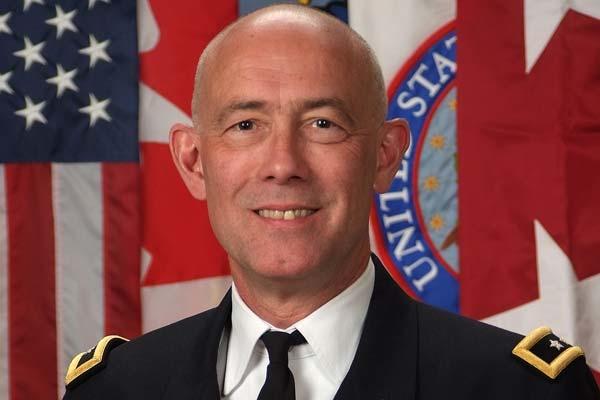The U.S. Army Reserve commander wants his force to be able to deploy faster, but that may not mean more training days for everyone.
Lt. Gen. Charles Luckey, commanding general of Army Reserve Command, said the current threats facing the United States may require reserve units to deploy on short notice with active-duty and National Guard combat forces into a high-intensity conflict.
"We find ourselves now in what I would submit is a different threat paradigm in terms of things we need to be ready to accomplish from a warfighting perspective should we be challenged or contested," Luckey told a group of defense reporters recently in Washington, D.C.
The reserve is made up of commands designed provide support, such as aviation, medical, military intelligence, civil affairs and theater sustainment, to active-duty and National Guard combat forces.
Unlike the active component, it is made up of "somewhere between a 90 percent and 94 percent" part-time force that has to balance civilian employment with reserve training requirements, Luckey said, adding that he recognizes reservists have to be free to advance and be upwardly mobile in their everyday jobs.
"In other words, I want soldiers who are in their day jobs -- if you will -- challenged, and progressing and feeling comfortable … and very satisfied that they have enough time to devote to their civilian careers," he said.
This will likely be a challenge because Luckey recently announced he wants to stand up Ready Force X -- a package of up to 33,000 reserve forces capable of mobilizing and deploying into a major contingency operation much faster than traditional reserve units.
So instead of having several years to plan and prepare for a rotation, many reserve units may have to be ready to go in less than 90 days, he said.
"One of the things I have asked the team to do is help me assess … where is that ... breakpoint where the amount of training necessary to achieve a certain level of readiness is probably unsustainable for soldiers that are trying to maintain civilian employment," Luckey said.
Like the National Guard, reservists are required to train 39 days per year.
"So how many additional training days are required?" Luckey asked. That number, he maintains, will depend on the type of unit and the complexity of its mission.
"An engineer battalion probably needs more time to be able to operate at that level of proficiency -- at the battalion level -- than a detachment or some smaller group, whether it’s a chaplain’s ministry team or some other small unit of action that is a coherent unit the way that the Army looks at formations, but it is easier" to ensure it's fully mission capable, Luckey said.
"We are in the process of pushing to have flexibility to add a few more training days to the training year, but I am being sort of guarded on demanding X number of additional days until I have a better sense of what is really in the art of the possible.
"So what I am telling you is I don’t think it is going to be a one size fits all."
-- Matthew Cox can be reached at matthew.cox@military.com.





























